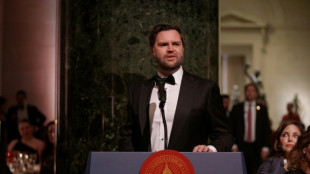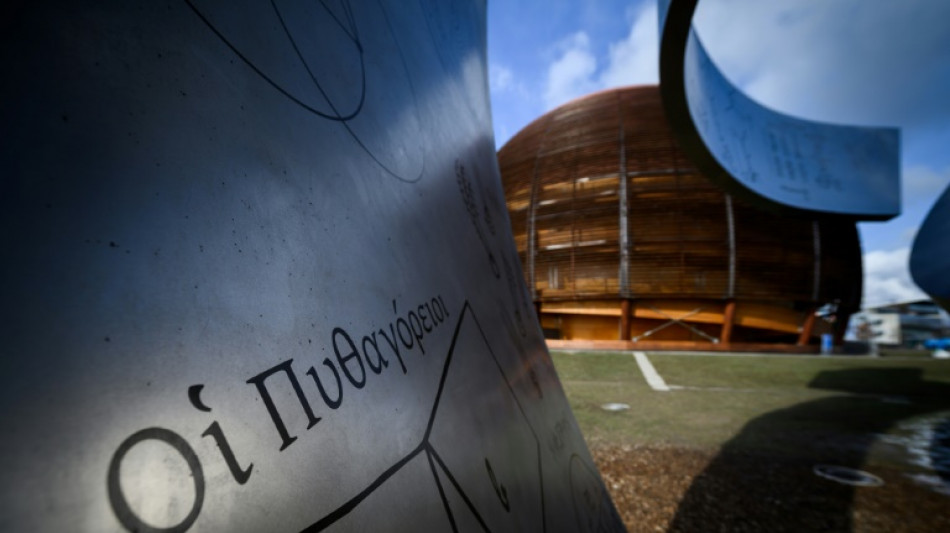
-
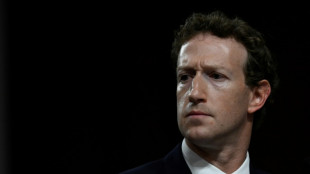 Zuckerberg denies Meta bought rivals to conquer them
Zuckerberg denies Meta bought rivals to conquer them
-
Starc stars as Delhi beat Rajasthan in Super Over

-
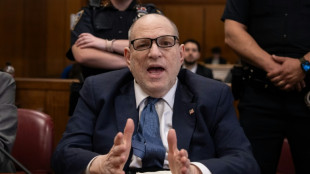 Weinstein asks to sleep in hospital, citing prison 'mistreatment'
Weinstein asks to sleep in hospital, citing prison 'mistreatment'
-
Amorim asks McIlroy to bring Masters magic to Man Utd

-
 Ruud keeps Barcelona Open defence on course
Ruud keeps Barcelona Open defence on course
-
Trump tariffs could put US Fed in a bind, Powell warns

-
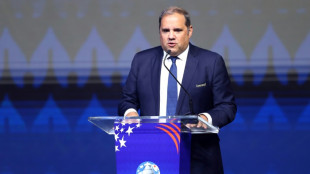 CONCACAF chief rejects 64-team World Cup plan for 2030
CONCACAF chief rejects 64-team World Cup plan for 2030
-
Putin praises Musk, compares him to Soviet space hero
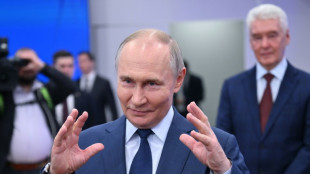
-
 Son to miss Spurs' Europa League trip to Frankfurt
Son to miss Spurs' Europa League trip to Frankfurt
-
US senator in El Salvador seeking release of wrongly deported migrant

-
 Trump tariffs could put the US Fed in a bind, Powell warns
Trump tariffs could put the US Fed in a bind, Powell warns
-
US judge says 'probable cause' to hold Trump admin in contempt

-
 India opposition slams graft charges against Gandhis
India opposition slams graft charges against Gandhis
-
Nate Bargatze to host Emmys: organizers

-
 US Fed Chair warns of 'tension' between employment, inflation goals
US Fed Chair warns of 'tension' between employment, inflation goals
-
Trump touts trade talks, China calls out tariff 'blackmail'

-
 US judge says 'probable cause' to hold govt in contempt over deportations
US judge says 'probable cause' to hold govt in contempt over deportations
-
US eliminates unit countering foreign disinformation

-
 Germany sees 'worrying' record dry spell in early 2025
Germany sees 'worrying' record dry spell in early 2025
-
Israel says 30 percent of Gaza turned into buffer zone

-
 TikTok tests letting users add informative 'Footnotes'
TikTok tests letting users add informative 'Footnotes'
-
Global uncertainty will 'certainly' hit growth: World Bank president

-
 EU lists seven 'safe' countries of origin, tightening asylum rules
EU lists seven 'safe' countries of origin, tightening asylum rules
-
Chelsea fans must 'trust' the process despite blip, says Maresca

-
 Rebel rival government in Sudan 'not the answer': UK
Rebel rival government in Sudan 'not the answer': UK
-
Prague zoo breeds near-extinct Brazilian mergansers

-
 Macron to meet Rubio, Witkoff amid transatlantic tensions
Macron to meet Rubio, Witkoff amid transatlantic tensions
-
WTO chief says 'very concerned' as tariffs cut into global trade

-
 Sports bodies have 'no excuses' on trans rules after court ruling: campaigners
Sports bodies have 'no excuses' on trans rules after court ruling: campaigners
-
Zverev joins Shelton in Munich ATP quarters

-
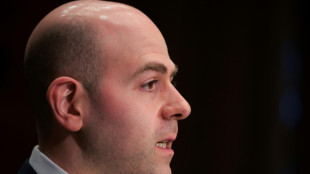 The Trump adviser who wants to rewrite the global financial system
The Trump adviser who wants to rewrite the global financial system
-
US senator travels to El Salvador over wrongly deported migrant

-
 UN watchdog chief says Iran 'not far' from nuclear bomb
UN watchdog chief says Iran 'not far' from nuclear bomb
-
Trump says 'joke' Harvard should be stripped of funds

-
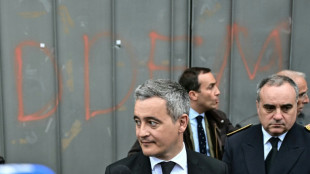 Macron vows punishment for French prison attackers
Macron vows punishment for French prison attackers
-
Canada central bank holds interest rate steady amid tariffs chaos
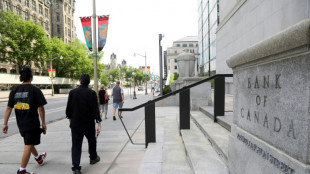
-
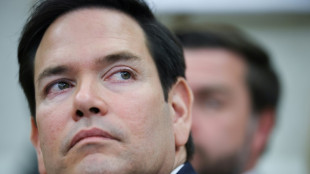 Rubio headed to Paris for Ukraine war talks
Rubio headed to Paris for Ukraine war talks
-
Australian PM vows not to bow to Trump on national interest
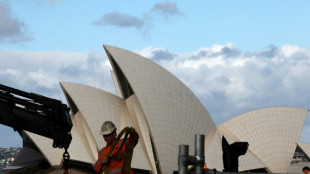
-
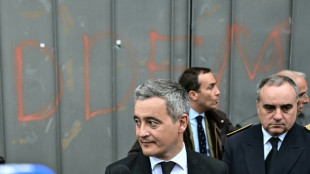 New attacks target France prison guard cars, home
New attacks target France prison guard cars, home
-
Global trade uncertainty could have 'severe negative consequences': WTO chief
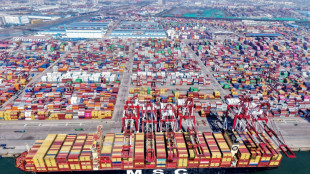
-
 Google facing £5 bn UK lawsuit over ad searches: firms
Google facing £5 bn UK lawsuit over ad searches: firms
-
Onana to return in goal for Man Utd against Lyon: Amorim

-
 Tiktok bans user behind Gisele Pelicot 'starter kit' meme
Tiktok bans user behind Gisele Pelicot 'starter kit' meme
-
'Put it on': Dutch drive for bike helmets
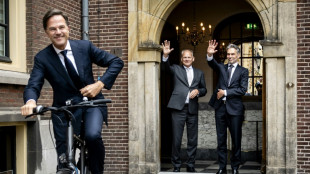
-
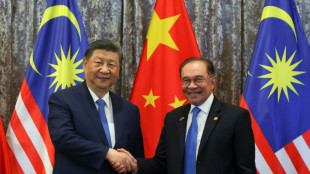 China's Xi meets Malaysian leaders, vows to 'safeguard' Asia allies
China's Xi meets Malaysian leaders, vows to 'safeguard' Asia allies
-
France urges release of jailed Russian journalists who covered Navalny
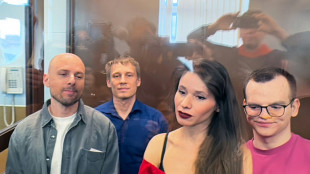
-
 Gabon striker Boupendza dies after 11th floor fall
Gabon striker Boupendza dies after 11th floor fall
-
UK top court rules definition of 'woman' based on sex at birth

-
 PSG keep Champions League bid alive, despite old ghosts reappearing
PSG keep Champions League bid alive, despite old ghosts reappearing
-
Stocks retreat as US hits Nvidia chip export to China
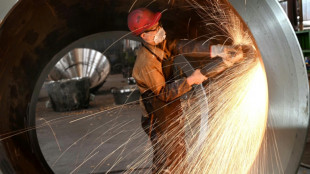

No technical obstacles to new giant particle collider in Europe: CERN
Europe's CERN laboratory said on Monday that a detailed analysis revealed no technical obstacles to building the world's biggest particle collider, even as critics took issue with the "pharaonic" $17-billion project.
The Future Circular Collider (FCC) project is essential for ensuring that Europe maintains its global leadership in fundamental physics, CERN chief Fabiola Gianotti told AFP.
"There is real competition" from China in particular, she cautioned, hailing that the giant FCC "project is absolutely on the good track" and urging states to release the funding needed to move forward.
After analysing around 100 different scenarios, CERN on Monday published the results of a years-long feasibility study for its preferred option: a nearly 91-kilometre (56-mile) circular tunnel straddling the French-Swiss border.
With an average depth of 200 metres (660 feet), the tunnel would accommodate a particle accelerator that would be more than three times the length of CERN's existing Large Hadron Collider, currently the largest of its kind.
The LHC -- a 27-kilometre proton-smashing ring running about 100 metres below ground -- has among other things been used to prove the existence of the Higgs boson.
Dubbed the God particle, the Nobel Prize-winning discovery broadened science's understanding of how particles acquire mass.
- 'Rich in possibilities' -
With LHC expected to have fully run its course by 2041, CERN has been analysing options to allow scientists to keep pushing the envelope.
Gianotti hailed the success of the feasibility study, stressing that "we have found no technical showstopper so far".
Others were similarly enthusiastic about the FCC.
"To make major progress in its quest to understand the origin of the universe and the role the Higgs boson plays... the global scientific community needs a machine as powerful and rich in possibilities as the FCC," Catherine Biscarat of the L2IT lab at Toulouse University told AFP.
But not everyone is thrilled with the idea of the giant project, which has been estimated to cost 15 billion Swiss francs ($16.9 billion).
CERN's member states -- 23 European countries and Israel -- need to decide by 2028 whether to release the funds needed.
But Germany, CERN's largest contributor, last year voiced reservations about the towering sums required.
CERN spokesman Arnaud Marsollier tried to allay those concerns, insisting that up to 80 percent of the FCC's cost "could be covered by the organisation's budget".
- 'Like David and Goliath' -
Some locals are meanwhile up in arms about the project and the impact it could have on their lives and livelihoods.
Thierry Perrillat, a dairy farmer in Roche-sure-Foron in France, maintained that the planned collider would swallow "five hectares of our farm".
"It's like David and Goliath," he said bitterly.
The project has also sparked disagreement among scientists.
"The financial, ecological, and operating costs are astronomical," physicist Olivier Cepas of the Neel Institute at the University of Grenoble told AFP.
"It would be better to fund smaller scientific projects," he insisted.
FCC project engineer Jean-Paul Burnet meanwhile insisted that the FCC plans had been "improved to reduce its environmental impact", by for instance lowering the number of wells and surface sites.
But environmental groups in the region were not convinced.
In a report, the environmental association Noe21 slammed the "excessive" FCC project, pointing to its "astronomical electricity consumption", its climate impact, its cost and scale.
- 'Stunned' -
Franco-Swiss collective CO-CERNes, which includes the WWF and Greenpeace, has been organising information sessions in nearby communities.
At a recent such session in Marcellaz, located near one of the eight planned FCC surface sites, organiser Thierry Lemmel told AFP the group was providing information about this "pharaonic project".
"Progress is necessary," he said.
But, he asked, given the state of the planet today, "should we really be mobilising so many resources, so much wealth ... for this project, with uncertain results?".
Among the around 100 people who attended the Marcellaz meeting was Kevin Mugnier, who had only just heard of the FCC project.
"I was a bit stunned," he said, worried his land might be requisitioned.
In Ferney-Voltaire, at one of the seven surface sites planned on the French side, mayor Daniel Raphoz said he favoured the "win-win" project, which he maintained would have positive effects on employment and energy.
"CERN's overflow energy will be used to heat the town," he said.
If the FCC is not built here, progress would move elsewhere, he warned.
"It will be happening in China, (marking) European decline."
apo-burs/nl/sbk
S.Gantenbein--VB




